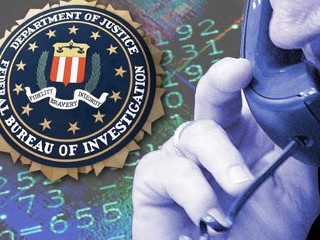Report shows how FBI chronically compromised civil liberties

A relatively ignored study has put into stark relief the cons of an emerging surveillance culture in America. According to information uncovered by the Electronic Frontier Foundation (EFF), the Federal Bureau of Investigation has a startling track record of illegal and intrusive intelligence investigation practices.
The EFF has reviewed nearly 2,500 pages of documents obtained by a Freedom of Information Act request that detail violations reported to the Intelligence Oversight Board by the FBI from 2001 to 2008. Their analysis reveals that the civil liberties of Americans are at a greater risk of being compromised than civil libertarians previously thought.
Here are some key points of the report:
From 2001 to 2008, the FBI documented 768 violations, but it claims to have investigated at least 7,000 potential legal violations by agents.
Among “potential and actual” violations reported were the use of improper evidence to obtain federal grand jury subpoenas, false or inaccurate submissions of declarations to courts, and the warrant-less access of password-protected documentations.
One-third of the violations dealt with internal oversight of intelligence investigations.
Abuse, misuse, or the careless use of the Bureau's National Security Letter (NSL) made up another third of the violations.
In nearly half of all NSL violations, third-parties to whom NSLs were issued — phone companies, internet service providers, financial institutions, and credit agencies —contributed in some way to the FBI’s unauthorized receipt of personal information.
Violations of the Constitution, the Foreign Intelligence Surveillance Act, or other laws governing criminal investigations or intelligence gathering activities accounted for almost one-fifth of reported abuses.
From 2002 to 2006, the phone records of thousands of US citizens were collected and monitored.
There were substantial delays in the intelligence oversight process; on average, 2.5 years elapsed between a violation’s occurrence and its eventual reporting to the IOB, the report found.
In all, the number of times the FBI exceeded its legal authority in the first seven years of the "Age of the Patriot Act" could be as high as 40,000.






